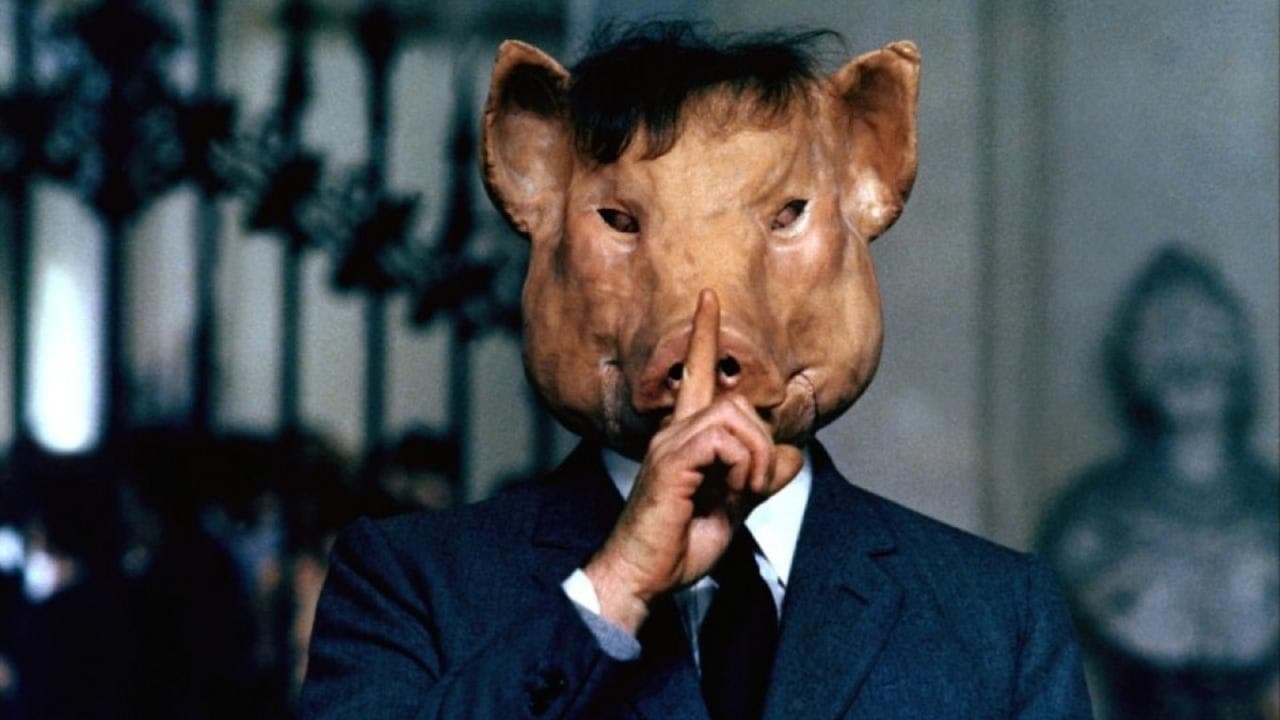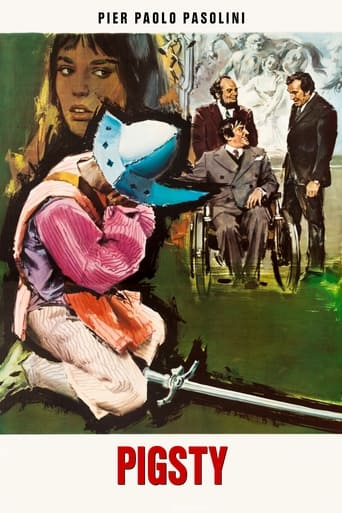

I think this is a new genre that they're all sort of working their way through it and haven't got all the kinks worked out yet but it's a genre that works for me.
... View MoreThe plot isn't so bad, but the pace of storytelling is too slow which makes people bored. Certain moments are so obvious and unnecessary for the main plot. I would've fast-forwarded those moments if it was an online streaming. The ending looks like implying a sequel, not sure if this movie will get one
... View MoreI didn’t really have many expectations going into the movie (good or bad), but I actually really enjoyed it. I really liked the characters and the banter between them.
... View MoreBy the time the dramatic fireworks start popping off, each one feels earned.
... View MoreThis movie is a testament to the power of poetry and its capacity to dwarf the medium of cinema. Pasolini merges the rites of passage towards 'bildung', {German concept for the development of civilizing Culture}, using five separate themes; - the immature rapport between a wealthy, young bourgeois couple, {named Julian and Ida}, the dilemma of Julian's parents, who desire the union, {it would be materially beneficial}, and the contrasting styles of two German plutocrats, - all this Pasolini combines and contrasts with the historical Italian vagabond life of a countryside bandit , circa the early 1500's, armed with a musket, roving the barren hilly escarpment in the Pompeian district and preying on unarmed, vulnerable Christian pilgrims on their way to Rome.Julian and Ida play at being in love - but their inexperience leads them to compromise reality with their love of words. Julian is a spoilt young man who has been infantilized by his doting mother, who in her ensuing dialogue with Ida reveals herself to be totally blind to her son's character, believing instead that Julian has all the laudable attributes of a good German. The narrative flow concerning this German family, shot as an interior with much opulence, antique furniture and Renaissance paintings, in enormous palatial rooms, which as the story moves forward, is intercut with desolate scenic waste as the vagabond displays primitive savagery, in killing, dismembering and cannibalizing his victims. These scenes are in a landscape that is evocatively lyrical and empty of civilization {that is apart from the hymns which are beautifully chanted by the pilgrims on their way to destruction}.In a parody of Godard and Truffaut, it soon becomes obvious that the love of the two 'pretty young things' is doomed to fail {as the barrier that they set up between each other with meaningless words becomes insurmountable}. The movie now shifts into its essential focus. The two plutocrats, the one, being Julian's father Herr Klotz, a German word for 'idiot' or blockhead, and the other, Herr Herdhitze, meaning 'hot fire' {possibly a reference to the exterminating ovens}, square up as two contrasting sides of the German psyche. Klotz, a humanist, is a cultivated man with a sense of cynicism and an appreciation of the accurate satirical art works of George Grosz - he sees himself depicted by Grosz sitting in a café with a sexy young secretary on his lap, cigar in his mouth and a piggish face - he also refers to Brecht's championship of the workers. Herdhitze, a technocrat, on the other hand, refers to himself as a man of science, who despises individuality, and wants to convert all the impoverished farmers to technicians - he has no soul at all.The two men face off with the core of the German problem - their love of the meat of the pig. Their dialogue .... Klotz - 'the Germans love their sausage' to which Herdhitze replies 'shit' Klotz 'but they do defecate a lot'. The ironic impasse between the two Nazis is whether Jews are pigs or not - with the added Surreal contradiction of, if the Jews are pigs why do the Germans love their pork. and why do they grunt like pigs?The year is 1959, in the German quest for an economic miracle, questions of Jews and culture are easily overcome, and the two plutocrats combine forces, in the pursuit of their worship of material wealth. Meanwhile Julian has resolved his confusion, and sacrifices himself to the totem of the pig, by going to the German Temple - the Pigsty - and there offers himself as an anointed meal to the pigsPasolini has wrought a great work of Art that might have been an Epic Poem or a great novel or a great Painting like Picasso's 'Guernica' or Goya's 'Atrocities of War'. He certainly has no sympathy whatsoever for the Nazi German and his god 'The Pig'. This is a difficult movie to digest, but it's rationale is crystal clear. If you are interested in the History of the Intellect, then this movie is unmissable.
... View MoreI honestly admit that this film was not easy for me. But I believe that the only intention of director was to express language more beautiful and therefore with more power and suggestion. And I think this is why Pasolini is Pasolini and not Spielberg. There are three important pillars in this society that converts, under Pasolini's view, our existence in corruption: capitalism, Burgess and catholic religion. Somebody has already talked about the first (Burgess is a consequence) but I didn't heard anything yet of catholic religion. The second history (dream of the first?) ends up by dogs eating bodies of those men who first were forced to kiss the cross. Julian died devoured by pigs. Both had follow opposite ways of compromise but both died because of the beasts. What I understand is that even if Julian had followed second history (...I killed my father, I ate human flesh...) cannibalism of these powers would have defeated him. The role of the priests in second history is just to denounce the intolerance, hypocrisy and aim of power and control of Catholic religion.
... View MoreWith this, I only have one more Pasolini feature to go and I have seen all of them (the missing culprit being Accatone). Porcile does not represent Pasolini at his best. It's far too abstract and obscure. Two stories alternate, one taking place in a quasi-legendary time and one in modern times. The quasi-legendary scenes concern a young cannibal, some rapists and murderers. The modern sequence concerns some former Nazis living in Italy. One of their sons, played by French actor Jean-Pierre Leaud, is sick of the evil, bourgeois lifestyle he leads. At one point, since he lacks any ambition, he throws himself into an intentional coma. I don't get it, especially how the two parts work together. Still, as a Pasolini fan, I have to admit that it is a strikingly made film. I especially liked the scenes set in the past. Pasolini regulars Franco Citti and Ninetto Davoli (the only actor, I believe, who appears in both parts of the film, although I have no clue why) come along for the ride. Pasolini fans should certainly see it, others should avoid. 7/10.
... View MorePorcile is one of those films that gets under your skin, and you're not sure why. The storyline unfolds in a style that is typically atypical of Pasolini; the tale of a college-aged son of a former Nazi isolating himself from everyone else (while encountering feelings that lend the film its title) is intertwined with that of a cannibalistic hermit from the Middle Ages. What results is a parallelistic criticism of modern society, not unlike Pasolini's earlier Teorema. The ending, which leaves an impact (although the actions take place off camera), is understated but undeniably chilling. Overall: 9/10
... View More